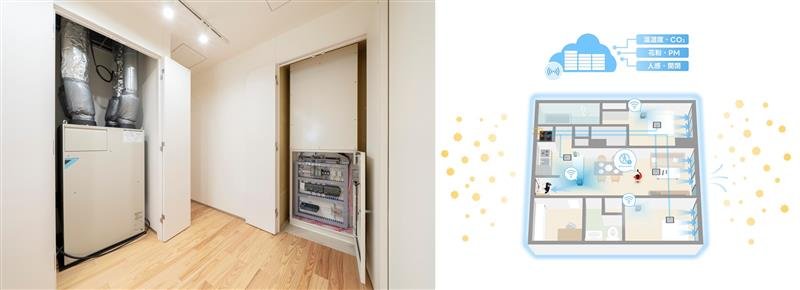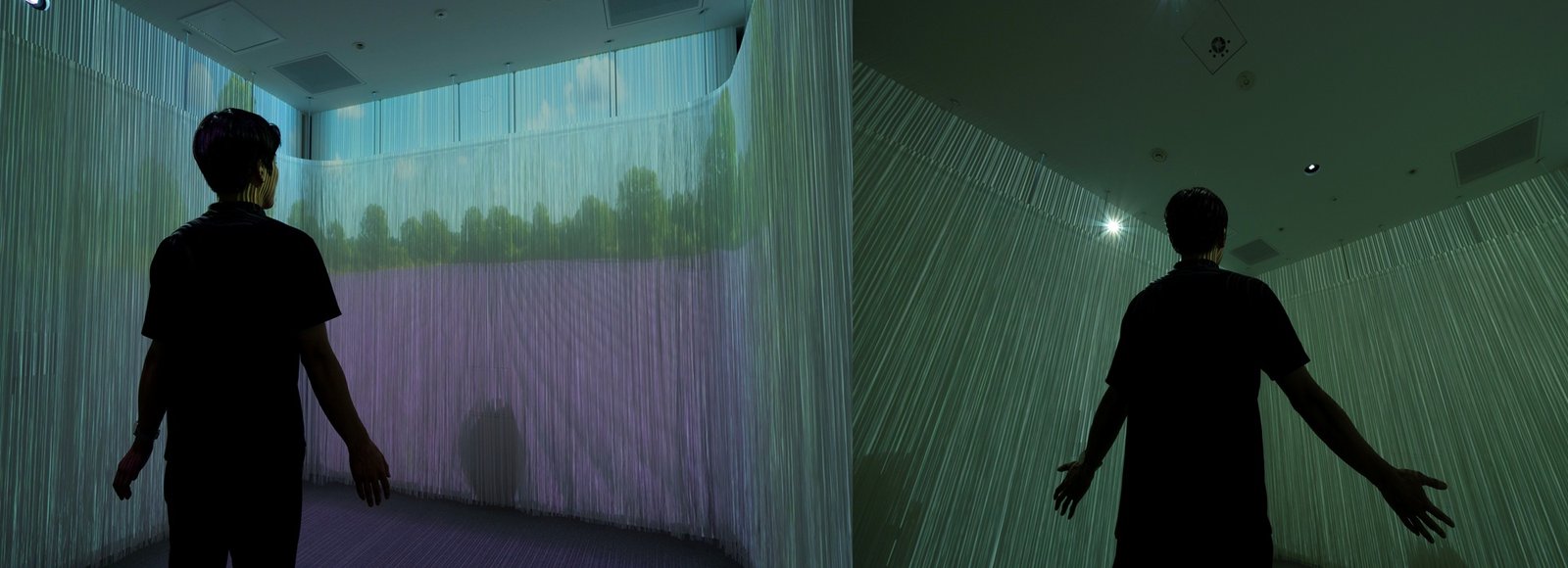Daikin Industries has begun demonstration trials of two next-generation air management systems at Toyota Woven City in Japan. The company is testing solutions to create both “pollen-free spaces” and “personalized functional spaces,” aiming to enhance physical and mental comfort indoors.
The project targets two growing social issues: allergic reactions to pollen and chronic stress, both of which can negatively impact individual health and workplace productivity. Daikin seeks to accelerate the development of technologies that address these challenges through advanced air conditioning systems.
The “pollen-free space” system focuses on identifying and blocking the entry paths of pollen into residential areas. The test homes will be equipped with sensors inside and outside that detect temperature, humidity, pollen levels, dust particles, human movement, and window usage. Based on this data, Daikin will evaluate system configurations that integrate air conditioners, ventilation equipment, and air purifiers to minimize pollen entry and enhance indoor air cleaning.
The second innovation is a multi-sensory environmental control system designed to create “personalized functional spaces.” This system links temperature, humidity, visuals, sound, and scent to recreate immersive environments. For example, a cool, quiet highland-like space can be created to aid concentration, while a tropical ambiance with warmth and fragrance could support relaxation.
This system also incorporates both subjective user feedback and objective biometric data to adjust environmental settings. The goal is to test how these customized conditions affect user comfort and well-being in real-world scenarios.
Daikin will continue to collect long-term data from residents in Toyota Woven City and use their feedback to refine these systems.

